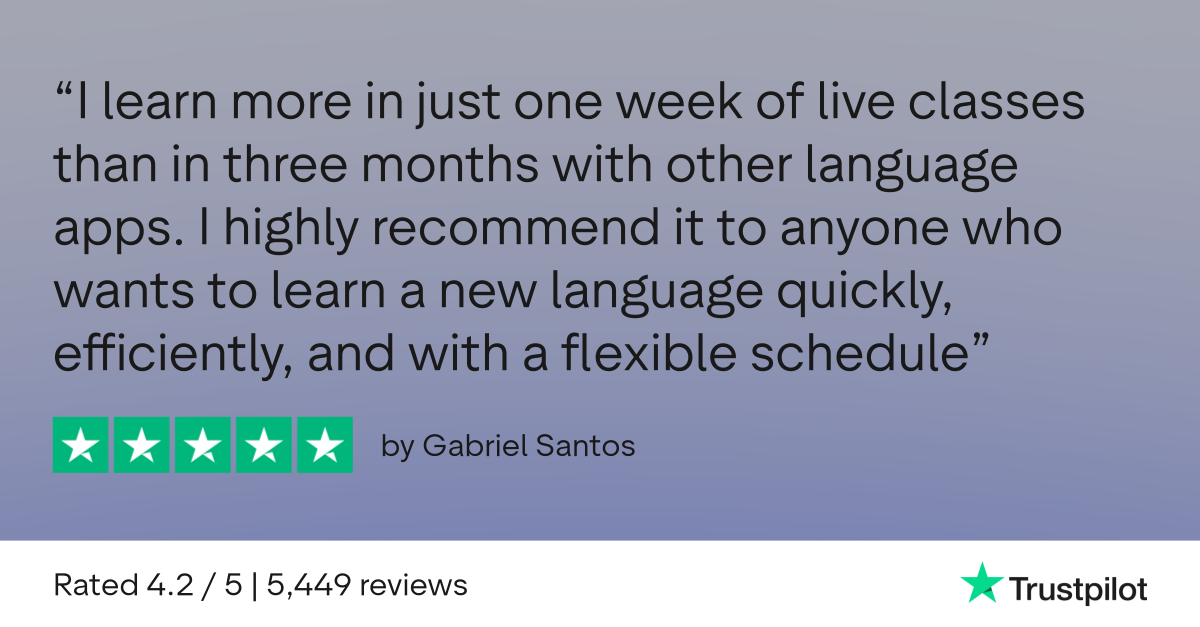9 ways to say “I miss you” in German
Missing someone is universal—a partner, a friend, or family far away. In English, saying “I miss you” is simple. In German, though, things get more interesting: there isn’t just one phrase. Depending on grammar, tone, and context, you’ll hear different ways to express longing.

That’s why learners often wonder: should I say ‘Ich vermisse dich’ or ‘Du fehlst mir’? And what about softer, poetic, or playful alternatives?
This guide walks you through the most common, romantic, and casual expressions of ‘I miss you’ in German. We’ll also cover grammar and pronunciation tips, plus cultural insights so you sound natural in any situation.
- The two most common ways to say “I miss you” in German
- Poetic ways to express missing someone
- Casual, colloquial, or regional expressions
- Grammar and pronouns: Speaking correctly
- Responses to ‘I miss you’ in German
- Cultural tips: Saying ‘I miss you’ the German way
- FAQs
The two most common ways to say “I miss you” in German
1. ‘Ich vermisse dich’
This is the go-to phrase for ‘I miss you.’ You’ll hear it between partners, close friends, or family members. It’s simple, direct, and usually the first version learners pick up.
- Grammar tip: The verb vermissen takes the accusative case, so you need dich.
- Example: Ich vermisse dich jeden Tag. (I miss you every day.)
Pronunciation is mostly straightforward, but many learners stumble on the soft -ch at the end of dich. It’s not a hard “k” sound — it’s closer to a gentle “hiss” [ç].
2. ‘Du fehlst mir’
Literally, this translates as ‘You are missing to me.’ It might sound odd in English, but for Germans it’s perfectly natural—and actually more common than ‘Ich vermisse dich’ in everyday conversation.
- Grammar tip: fehlen works with the dative case, which is why you say mir.
- Example: Du fehlst mir so sehr. (I miss you so much.)
This one often pops up in texts or when saying goodbye in German. Many native speakers feel it carries a warmer, more emotional vibe than ‘Ich vermisse dich’.
Poetic ways to express missing someone
When simple words aren’t enough, German offers richer expressions that capture longing and affection more deeply.
3. ‘Ich sehne mich nach dir’ (I long for you)
Formal and dramatic—perfect for love letters or emotional declarations.
4. ‘Mir fehlt deine Nähe' (I miss your closeness)
It highlights physical or emotional closeness. This phrase works in romantic contexts, but also with family members.
5. ‘Ich wünschte, du wärst hier’ (I wish you were here)
A common phrase for texts or social media captions. Emotional, but safe for both friends and partners.
6. ‘Ich denke an dich’ (I’m thinking of you)
A softer way to show affection without going all-in. Great if ‘Ich vermisse dich’ feels too heavy for the situation.

Learn German with Lingoda
How it works

Casual, colloquial, or regional expressions
Not every situation calls for dramatic wording. In everyday life, Germans often keep things light—or even playful.
7. ‘Ich vermiss’ dich voll’ (I totally miss you)
Dropping the -e in vermiss’ makes it sound casual and authentic, like something you’d see in a text or voice note.
8. ‘Du gehst mir ab’ (I miss you)
A regional gem you’ll hear in Austria and Bavaria. Literally ‘You go off from me,’ but everyone understands it as ‘I miss you.’
9. ‘Ohne dich ist alles doof’ (Everything’s lame without you)
Playful and a little silly, but it works. You’ll often hear it between friends or even with kids and it still carries affection.
Grammar and pronouns: Speaking correctly
Getting the pronouns right makes a big difference. Say the wrong one, and your sentence might sound off — or even point to the wrong person! Luckily, it’s pretty simple:
When to use ‘dich,’ ‘euch,’ ‘ihn,’ or ‘sie’
- Ich vermisse dich → I miss you (one person).
- Ich vermisse euch → I miss you all / you guys (plural).
- Ich vermisse ihn / sie → I miss him / her.
So if you’re texting your partner, you’ll probably say dich. Talking to a group of friends? Switch to euch. Easy!
‘I missed you’ in the past tense
Want to tell someone you missed them before? You’ve got two good options:
- Ich habe dich vermisst. (I missed you.)
- Du hast mir gefehlt. (You were missing to me.)
Both work. The first one is more direct, the second one feels a bit softer and more natural in everyday German.
Responses to ‘I miss you’ in German
If someone says ‘Ich vermisse dich’ to you, you probably don’t want to just sit there awkwardly. Having a few ready replies makes the conversation flow much more smoothly.
Common replies
Here are some natural ways to say ‘I miss you too’ back:
- Ich vermisse dich auch. (I miss you too.)
- Du fehlst mir auch. (I miss you too - more idiomatic.)
- Ich denke auch ständig an dich. (I’m always thinking of you too.)
- Ich fühle das Gleiche. (I feel the same.)
- Das ist so süß von dir. (That’s so sweet of you.)
These work well with partners, friends, or family—basically anyone you’re close to.
Reassuring responses
Sometimes, instead of repeating the same phrase, you might want to comfort the other person or show optimism about seeing them again. In that case, you can say things like:
- Wir sehen uns bald. (We’ll see each other soon.)
- Du kannst mich jederzeit anrufen. (You can call me anytime.)
- Nur noch ein paar Tage, dann sehen wir uns wieder. (Just a few more days and we’ll see each other again.)
- Mach dir keine Sorgen, wir bleiben in Kontakt. (Don’t worry, we’ll stay in touch.)
- Halte durch, bald sind wir wieder zusammen. (Hang in there, we’ll be together again soon.)
Mixing affectionate replies with reassuring ones keeps things from sounding repetitive. Also, it makes your German sound more natural, just like in real conversations.
Cultural tips: Saying ‘I miss you’ the German way
Germans and emotional expression
If you’ve noticed that Germans don’t throw around big emotional statements all the time, you’re right. It’s not that they don’t feel it. They just tend to be more reserved with phrases like ‘Ich vermisse dich.’ Most people save it for partners, very close friends, or family. That makes the words carry more weight when they do say them.
When ‘I miss you’ might be too much
If you’re still getting to know someone, going straight in with ‘Ich vermisse dich’ can sound a bit intense. In those situations, softer phrases like ‘Ich denke an dich’ (I’m thinking of you) or ‘Ich freue mich darauf, dich zu sehen’ (I’m looking forward to seeing you) feel more natural. Choosing the right phrase shows not only good German skills but also cultural awareness.
What is the difference between ‘Ich vermisse dich’ and ‘Du fehlst mir?’
Both mean ‘I miss you.’ ‘Ich vermisse dich’ is direct, while ‘Du fehlst mir’ is idiomatic and more common in speech.
Is ‘Ich vermisse dich’ romantic?
It can be. Germans use it with partners and family, but some prefer ‘Du fehlst mir’ for everyday conversations.
Are there slang or informal versions of ‘I miss you’ in German?
Yes. Phrases like ‘Ich vermiss’ dich voll’ or ‘Ohne dich ist alles doof’ are informal and popular among younger speakers.
No more missing words: Mastering “I miss you” in German
Expressing ‘I miss you’ in German isn’t just about translating words. It’s about understanding grammar, tone, and culture. From the classic ‘Ich vermisse dich’ to regional gems like ‘Du gehst mir ab’, German gives you plenty of ways to express longing, affection, or even playful closeness.
The best way to master these expressions is to practice them in real conversations. Reading lists helps, but nothing replaces hearing how natives actually use them and trying them yourself. With Lingoda’s small group classes and native-level teachers, you can practice, learn German and build the confidence to use these phrases naturally.
So the next time you miss someone, you’ll know exactly which German phrase fits the moment and won’t miss the chance to use it right.

Learn German with Lingoda
How it works

We use AI tools to support idea generation and drafting. Every article is edited by our editorial team to ensure accuracy, clarity, and quality.
















